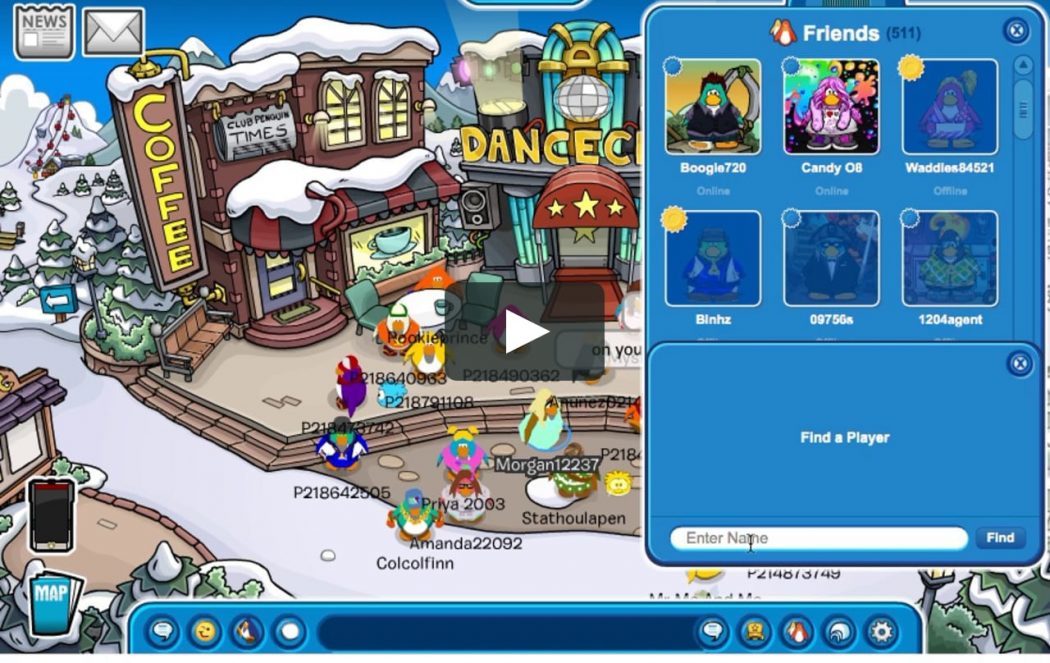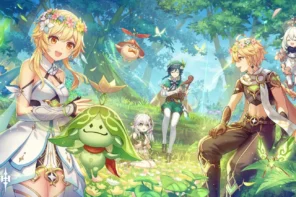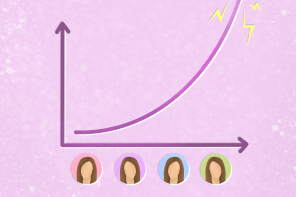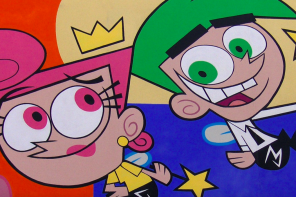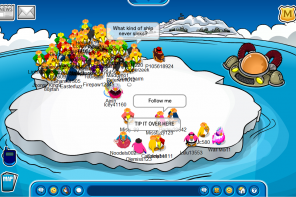Introducing…… Aughts & Culture
“Only 90s kids will remember!” You roll your eyes. Trapped in limbo between the iconic days of the 90s and the unrelatable youth that eat Tide Pods for clout, us turn-of-the twenty-first century babies are a subculture of our own. Too young to appreciate the questionable 90s Nickelodeon cartoons (here’s to you, Courage the Cowardly Dog, thanks for the traumatization!) and unbridled MSN conversations, many of today’s undergraduate students were born straddling the generations of Millenials (a common cut-off year being 1996) and Generation Z (post-Y2K births). Misunderstood and often forgotten, we are the children of the Aughts. For those who don’t know, the Aughts is the decade between 2000 & 2010, a time many of us dreamily look back on adolescence. As a reminder of these simpler times, The Bull & Bear decided to appreciate and reflect on the iconic shows, games, snacks, and toys of the early-2000s. For the first installation, Growing up Gaming, some of our staff writers will explore a few of the most pivotal and influential computer programs that shaped our childhood.
Webkinz by Cheyenne Cranston
Coming from a rural town in Alberta meant that trends usually hit substantially later than in cities. I’m pretty sure this happened with Webkinz, since it launched in 2005 and the fad definitely did not hit my town until well after that. However, once it did, those little plush toys and online codes became the hottest commodity in elementary school. I distinctly remember my incredible mom driving from store to store in our small town desperately hoping someone had gotten new stock. In all honesty, I can’t even remember what type of animal my Webkinz was, but I remember how excited I was when I finally found one. The toy itself was pretty meaningless to me. It probably sat on my bed until I got a new stuffed animal and it was tossed to the side. The real prize in my Webkinz search was the little code that granted you access to an exclusive online world. Not having one of these codes meant that you couldn’t partake in the online gameplay with the other kids, and if you didn’t know about “Cash Cow” or “The Wheel of Wow” you may as well have accepted your fate as a social outcast. Never had a little collection of numbers and letters meant so much to me. Looking back, I realize how ridiculous the whole thing was, and how damaging it was to kids whose parents couldn’t afford the fifteen dollars to buy their kid a cheap plush toy. Apparently, socially excluding children from the real world isn’t enough, so the market had to create a virtual one to exclude kids from too.
Runescape by Jacob Klemmer
Some say that music is the quickest way to induce nostalgia. I tend to agree: every time I hear those aggressively fake trumpets blowing, I feel the chills of nostalgia running down my spine, and my mind fills with memories of killing rats, looting their bones, mining and smelting steel bars, and selling them on the grand exchange, waiting for the day that I could buy some Adamantium armour and finally enter the PVP wilderness. I remember exactly who in my class had the coveted Runescape membership, and who was in the slums, grinding for the same experience. I remember the friendships that it forged and the ones that it broke. To this day, I think of Runescape’s world–which seemed massive but grew smaller and smaller as I got older–much the same way I view the small town where I grew up. In this analogy, McGill is the PVP wilderness…
Club Penguin By Jenna Benchetrit
Waddle around and meet new friends.
Long before I was wasting my time mindlessly scrolling through social media, I had an account on Club Penguin, the multiplayer online universe where your avatar was a plump little penguin. You could jump from island to island in search of friends, play games like Thin Ice or Pizzatron 3000 for virtual coin, and then spend that coin on the pricey merchandise in the gift shop, the puffle store, or on igloo interior design. Sometimes you wandered into the pizza shop and found yourself on a date with a handsome penguin. Sometimes you gathered at the lighthouse in anticipation of Captain Rockhopper, the elusive pirate penguin. Sometimes, you just were, and you could sit in your igloo or stare wistfully into the distance at the top of the ski hill without a care in the world.
What I remember most distinctly about Club Penguin now is the maddening class hierarchy, in which the site’s bourgeoisie (those who paid a monthly membership fee) had access to Super Deluxe bungalow-style igloos and insanely cool wigs from the gift shop, while the other 99% had to make do with whatever random free stuff they stumbled across on the island — usually mismatched items that made one’s penguin immediately identifiable as a non-member. As someone who spent most of their time on the site as a non-member, and then had a brief one-year stint as part of the elite, I can confirm that absolute power corrupts absolutely.
Yet either way, there was something glorious about the site, which restricted its young players from sharing personal information, but felt like a gateway into something untapped and exciting. There was a whole world of people behind those penguin avatars, and it made the internet feel both accessible and impossibly vast, especially in the years preceding Instagram and Twitter. I had a Club Penguin account for three years and my parents were deeply concerned about my attachment to this weird website. The only reason I stopped going on it was because I got permanently banned for swearing too much.

